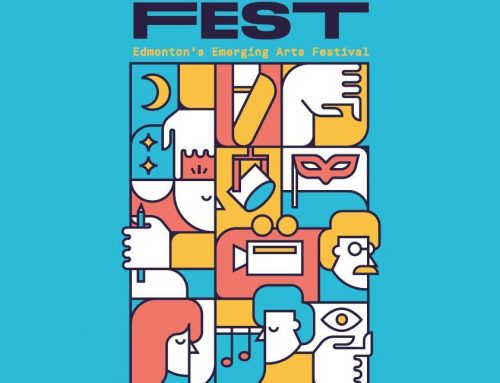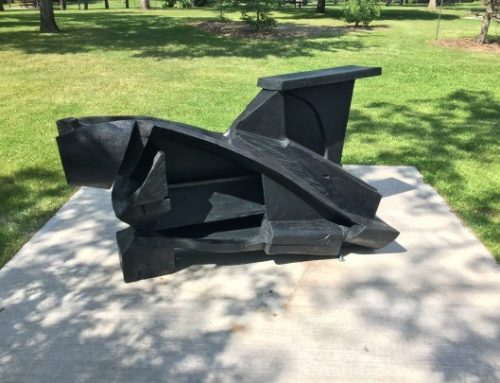By Graeme Dearden (Communication Assistant).
About three or four weeks ago, a fellow student in the glass department of The Alberta College of Art + Design (ACAD) asked me about helping her complete a little bit of work for a project she was working on for a show. She needed to grind and polish some large glass rocks, basically. Being the middle of finals week and I was deep into in my own work, so I was not able to help out. My first thought, though, was that I did want to help. She couldn’t do it because she had broken her arm and I thought she was really just asking for a favour. I had helped people with things like that before and it’s pretty common currency in a department like glass, that often relies upon partner work. This is all on top of the fact she’s always been extremely nice and even though I didn’t know her well, it really seemed as if she didn’t have a lot of options for completing this work in her injured condition.
However, I told my girlfriend about this (she is also an artist and student at ACAD) and her reaction was that regardless of my workload and her current circumstance, I should have said no. Artists should be paid. Even if she was the nicest person in the world, I should never be doing work for nothing. We discussed it for a while and I eventually noticed that she wasn’t really being harsh about this statement. It just was a a very simple fact about the work we do. It’s not due to some Scrooge-like contempt that artists take this stance; it’s just due to the fact that we are working a job of sorts and our services are not just hobbies or labours of love. Working for Visual Arts Alberta – CARFAC, I felt as if I should have been the one saying this first. It did make me think for a while about the nature of our services provided, though.
Something I always remember when issues of payment come up is what ACAD’s Student Life Coordinator, Dan Barnfield, had to say about this in my first year at the school. He would say something along the lines of, “Would you ever go up to your mechanic and ask if he could just fix your car for you, without being paid? No, you wouldn’t. And it works the same for an artist. You shouldn’t be working for nothing.” It always seemed like a good line to live by as an artist and I’ve tried my best to use that philosophy, and expand upon it, when necessary, for my work as an artist and communication assistant with VAA-CARFAC. It’s another variant of the battle cry of all arts advocates and what my girlfriend reminded me of: Artists should be paid.
But, does this rule ever become flexible? In the situation I described at first, it wasn’t as if I was asked to provide work for someone because they figured it was a service that should be free anyway. I was being asked to help out someone who understood that it was a special circumstance and understood that I would be doing a favour for her. However, when friends and family ask artists they know to make something for them (in the classic way I’m sure many aspiring artists are familiar with), don’t they think they’re in a special circumstance as well, due to their relationship with you? What they’re asking for essentially is a friends and family discount. This is also exactly the kind of situation Dan Barnfield was talking about in my first year. If you’re a business (which you are if you are a artist), it doesn’t make sense to provide free services for anyone, especially if your business is the type that’s known for bringing in roughly $8000 a year on average.
This situation made it clear to me that something which was never clearly articulated during my time as a student is where to draw the line between favours and work.
The first things that I would figure is important to think about when considering this division is need. Does your uncle who wants to snatch a painting off of you for free really need it? Or if you were a fabricator, are the artists who need help producing components for their work really in dire enough need that favours should be handed out? Both of the answers to these questions, to me, are: probably not. But, what about the first situation? What if your dealing with an artist who needs help with work due to an injury or other unforeseen circumstances? You could also take organizations effected by Calgary’s flood as an example. I would be much more likely to help out in situations like these and it’s hard to describe why.
I think that it brings this article to a very basic question about altruism. Take some time this week to simply think about where your breaking point is. When does your art work become an art favour? At what point would you see yourself using your talents as a cultural producer purely for the good of other people, regardless of income? I have no intention of providing a sustainable answer to these question, but I just hope people take time to think about it.





